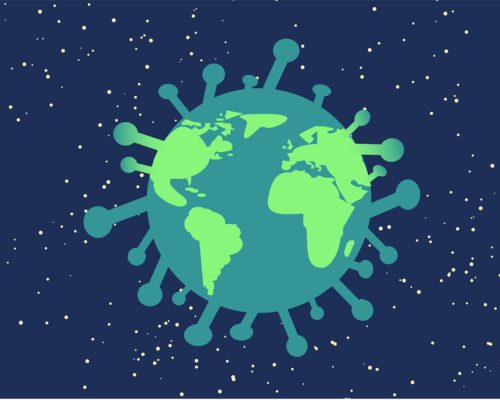The pandemic, especially the recent second wave, has shaken us all up so badly that even when it recedes and goes, life may not be the same gain.
Some have gone through the fever, cough and fear of death. Many saw the trauma happening to others, and shared the feeling of uncertainty and helplessness of getting a hospital bed, oxygen or medications, or the fear or grief of loss of life.
This kind of trauma affecting a large section of society, does not go away easily. It leaves behind its shadow on our moods, attitudes, relationships and goals.
Post-traumatic stress disorder (PTSD), now more specifically adapted to the pandemic as Post-Covid Stress Disorder (PCSD) is characterized by inability to return to “normal” after experiencing a terrifying event. It may last for months or years and may include flashbacks or depressing thoughts, avoidance of situations that bring back the trauma, anxiety, anger, depressed mood, inability to concentrate, and poor motivation at work.
Many people feel detached, start wondering about the purpose of achieving targets or working, stop enjoying things they once liked doing, constantly feel fearful, and fail to have fun with relatives or friends.
The three roots of the present surge in PCSD are fear, loss, and grief.
Fear has affected almost all of us: from catching the infection, to falling ill, to developing a serious or critical disease, to finding a hospital bed or oxygen, or of dying.
Loss has been common: there is hardly anyone who has not lost a relative or neighbor or colleague. And when the person has been a “not too old” or in apparent good health, it has brought the additional unexpected distressing “it could have been me” feeling.
Grief has followed loss, and made many go through several stages: from denial (“it can’t be happening to me”), to anger (“the hospital that could not provide a ventilator should be destroyed or sued”), to bargaining (“my elderly mother died but at least the children are alive”), guilt (I wish I had taken her to hospital earlier), depression, and finally acceptance.
It is estimated that one of every three of us might suffer from PCSD.
Let us not forget that a large brunt of the trauma has been borne by front line workers: apart from over 600 doctors who have died during the second wave alone, they have had to live through the nightmarish three months of attending to dying patients or breaking bad news to shattered relatives all every day.
If life has to return to normal again, PCDS needs tackling.
A simple first step is to talk, vent and unburden one’s traumatic experience and feelings to a relative or friend.
Professional counsellors are in short supply, but helplines such as those of NIMHANS, Bangalore, are super busy. They often guide and train patients to CBT (Cognitive Behavior Therapy), training them to identify the trigger thoughts, which in turn generate intense negative feelings…which then are modifying behavior).
A short course of medications for stress often helps many to recover faster. And Yoga and meditation can help calm and strengthen the disturbed mind.
Managing PCDS is being feared to emerge as the major health challenge in times to come!
Contributed by-
Dr. (Prof) Gourdas Choudhuri,
Chairman, Department of Gastroenterology and Hepato-biliary Sciences,
Fortis Memorial Research Institute, Gurgaon, Haryana.
The article has been published in HT City, Lucknow.
To read more articles by Dr. G. Choudhuri, please visit www.drgchoudhuri.net


